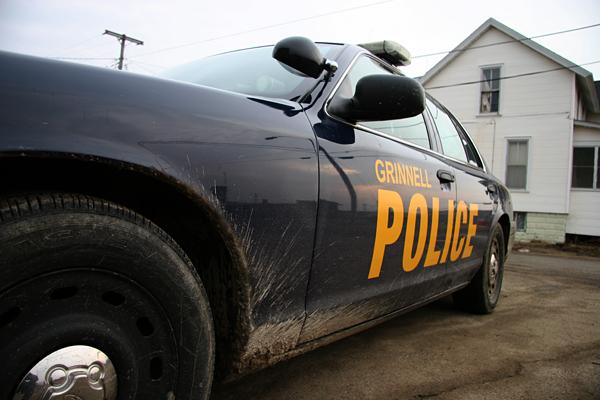
In the midst of a perceived uptick in police activity, ACE Security—the student run organization responsible for basic safety and security at all-campus events such as Harris parties and concerts—organized two campus-wide discussions to educate students about their rights and responsibilities vis-à-vis law enforcement agencies, as well as the role Campus Security and ACE Security play on campus.
The events included a fireside chat held on Tuesday at which SGA President Neo Morake ’09 spoke about safety on campus. ACE Security co-Director Ben Howort ’09 also fielded questions on the role of ACE Security.
On Thursday, Howort hosted an information session about how to act when encountering police officers. The event began with opening remarks by Director of Campus Security Stephen Briscoe. Afterward, Howort fielded student questions on issues ranging from when police can enter dorms to their legal rights regarding warrants and evidence usage.
“I would love for people to be more informed about their rights in terms of interacting with police,” Howort said. “The other thing I’d like to see change, and this goes for the whole student body, is that I’d love to see more alcohol related education and a shift in the alcohol culture here.”
Some students who have recently interacted with Grinnell police said they felt that Grinnell students were treated differently than city residents by the police. Will Schwaller ’09, one of the student arrested three weeks ago, was picked up for public intoxication and interfering with official acts. He said that he interfered because he was skeptical of the intentions of the Grinnell Police officer talking to a group of seniors returning to campus after 100 Days.
“I knew the Grinnell [Police Department] and specifically this officer … have a record of trying to catch Grinnell students with public intox in the downtown area. So I was just kind of worried,” Schwaller said. “When we [leave campus] we’re looked at as different than other people, I think that’s unfortunate.”
Saida Ayupova ’10 said she felt that police presence on campus has increased since she first came to Grinnell. “In my first-year it felt really safe. You knew you’re not 21 and you can still have beer and walk across campus with your beer, you knew the police were never going to be there,” Aypova said. “But now you can’t do that because you don’t know when the police are going to show up.”
Despite student unease, Jody Matherly Chief of the Grinnell Police Department said that the College was not a target for policing activity and that it was treated the same as the rest of the community.
“The College keeps us busy but it’s really not overwhelming,” Matherly said. “We don’t have a huge problem with the kids there, we don’t have a huge problem with call volume there. … The last thing on our list is to try and harass college students.”
Matherly said that violations related to alcohol comprised the majority of those committed by Grinnell students. In comparison to its peer institutions, Grinnell College has a moderate number of student arrests per year related to alcohol. Under the Jeanne Clery Disclosure of Campus Security Policy and Campus Crime Statistics Act, all colleges and universities which participate in the Title IV federal financial aid program are required to publish annual crime statistics. According to the 2007 Clery reports from seven peer institutions, Grinnell saw roughly 3.2 arrests per every 1000 students. Other schools generally had numbers in the low single digits but ranged from as low as .54 at Macalester College to 20.6 at Amherst College.
Some of this mistrust might be inevitable, according to Dean of Students Travis Greene. According to Greene, students often will only interact with police officers in negative situations, strengthening an already present wariness. “I think that given any college student on any college campus, anytime you are going to see police officers outside of the community of which they’re a part, there’s going to be some healthy skepticism about why they are here, what’s their motivation, [and] what are they trying to do to me,” Greene said.
Administrators and the police said while they enjoy a good working relationship with each other, there is a healthy division of labor. Briscoe said, for instance, that he is not informed about police department plans and Greene said that he is rarely, if ever, directly contacted about any individual off-campus arrest.
Briscoe said that police officers are always allowed in the open parts of campus and can, under certain circumstances, enter residence halls. According to Briscoe, police typically enter a dorm for one of three reasons—when they possess a search warrant, are actively pursuing a suspect, or are responding to an emergency such as a fire alarm or violent act.
While Briscoe emphasized that the Police Department is the primary law enforcement agency for the campus and that they work well with Campus Security, the College’s Security Officers are often meant to act as a liaison between students and police. “What we try to do with the rules and regulations is not be in a position where you’re going to put yourself in a position where you’re going to get arrested,” Briscoe said.
Also acting as a layer between students and the Grinnell Police Department is the student-run ACE Security. “What happens at Harris is that ACE Security acts as … an additional buffer between the Grinnell College student at large and the police,” Howort said, “ACE Security’s role is to be active in self-governance, being responsible for addressing situations and communicating concerns about issues that undermine community or individual rights, whether they be your own or others.”
Howort said that ACE Security wants to better disseminate information about the group and safety and security on campus in general. In addition to the forums, ACE Security has created a plan on the popular cyber forum GrinnellPlans that addresses commonly asked questions.




























































